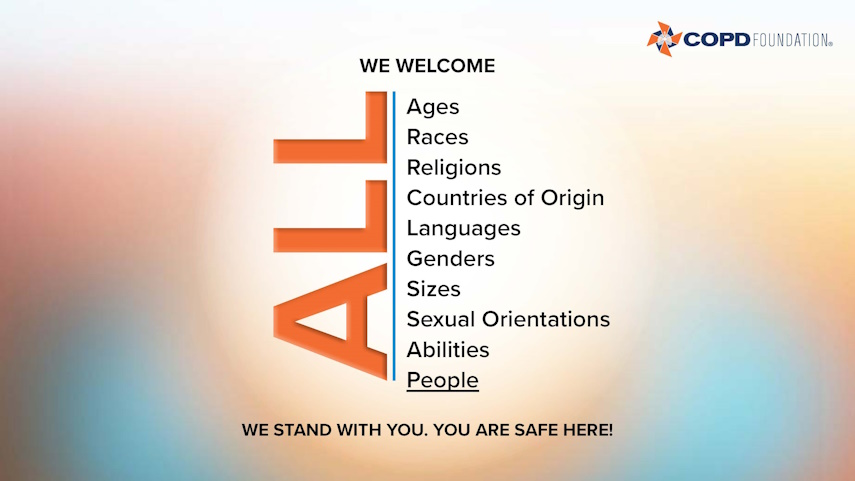Cultural Humility: Building An Inclusive Practice Through Genuine Connection
This post was written by: Amanda Atkinson, MSN, RN.

Have you ever pondered the fact that health is a fundamental human right? According to the World Health Organization's 1946 constitution, it is.1 As practitioners we are uniquely positioned to help those around us fully exercise that right. The question that we must ask ourselves is, are we acting as a door or a barrier to that right? If we are not actively practicing cultural humility, we may be unknowingly hindering those around us from fully accessing quality healthcare.
You may be wondering: "what is cultural humility?" Cultural humility is not a quick answer, but rather a lifelong process. It involves self-reflection and the recognition that our lived experience and backgrounds impact how we learn, engage, connect, communicate, lead, and follow. Cultural humility allows us to recognize that we do not know everything about ourselves, others, or a culture, but are willing to learn from patients, peers, family, and those around us.2 It mandates us to treat everyone as an individual and be receptive to learning about their diverse backgrounds and lived experiences. In a health care setting this practice helps informs care in all areas and allows us to truly keep the patient at the center of all we do.
Like many of you, in both my professional and personal life I have the privilege of connecting with many people of different ages, ethnicities, walks of life, faiths, and belief systems. One of the main things that I see as a universal theme across all of them is the desire for connection and authenticity. People want to be valued, seen, safe, empowered, and respected for who they are and what they bring to the table. When we feel these things, we are more likely to actively participate in relationships. In a health care setting, this translates to actions such as utilizing available resources, increased adherence to treatment regimens, and exploring new options for care.
If you are reading this, you are likely serving others in some capacity as a health care provider. We may not all hold the same credentials, but we are all people who have experienced needing care ourselves. Because of that we know the importance of trusting those who provide care, we also know that as patients, we need to feel valued and respected by our health care team. I read a market survey recently that said over half of people are willing to change providers, even if they have been patients for a long time, to find a care team that respected them and valued their contributions to their own care.3
You might be thinking: "how can I encourage that type of culture in my clinical setting?" Trust and respect are a two-way street, and it starts with YOU! Cultivating this atmosphere is not always easy, but it is possible. The first step is recognizing your own limitations and biases. The next is prioritizing connection by engaging with patients and colleagues as individuals, and seeking to understand and accept their unique needs, cultural beliefs, values, and practices.
It is very important that as clinicians, and as people in general, we are aware that while we may not intend to, we often make assumptions about people and situations. These assumptions are often dangerous and can be related to ethnicity, spirituality, age, and gender. As a health care provider what is even more dangerous is making assumptions about a person's health beliefs, health literacy, or mental and physical ability. These thoughts and beliefs can greatly impact our care decisions.
We all have biases whether we choose to accept it or not. Bias is a reaction of how our minds process information and streamline our thinking. Biases are part of an adaptive process in our mind. They allow us to use prior knowledge and experiences to inform our decisions and actions in the present. Our brains are designed so that we can make quick decisions unconsciously. Understanding our own biases is imperative to the practice of cultural humility and to providing quality, effective care.
Bias is most often formed over time based upon our experiences. Implicit or hidden biases are made up of our unconscious thoughts and opinions. For example, if I had a very negative experience as a child with a neighborhood dog, my mind uses that situation to form a bias that may cause me to stay clear of all dogs in the future. Some biases can serve to benefit us and help us survive. Unfortunately, in today's society, most do not help. Instead, they hinder us and others. I read recently that biases form the invisible lens through which we subconsciously see the world. They can impact our thinking and care delivery. Biases deeply influence our actions, thoughts, and behavior which can impact our clinical decisions. It is important to realize that we do not always see things the way they truly are, but as we are conditioned through experiences to see them. That is why it is so important to be open to the intrapersonal work of recognizing and changing our own biases. When we are aware of that we can take steps to change. To help discover your personal biases check out Project Implicit.
To learn more about the practice of cultural humility check out the Cultural Humility in Care Delivery 101 presentation in the COPD Foundations 101 Library. Topics within the presentation include:
- Allyship
- Bias
- Accessibility to care
- Inclusive care
- Health equity
- Psychological safety
- Cultivating an inclusive and safe work environment
- And more!
References
- Constitution of the World Health Organization. World Health Organization. Accessed May 17,2024. https://apps.who.int/gb/bd/PDF/bd47/EN/constitution-en.pdf?ua=1.
- Accreditation Council for Graduate Medical Education Glossary of Terms. ACGME. March 10, 2023. Accessed May 17, 2024. https://www.acgme.org/globalassets/ab_acgmeglossary.pdf
- Bengtson N, Rubin L. Healthcare Consumer Market Report. Huron Consulting Group. 2021. Accessed May 17, 2024. https://engage.huronconsultinggroup.com/Healthcare-Consumer-Market-Report-2021